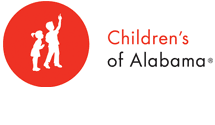A to Z: Kawasaki Disease
May also be called: Mucocutaneous Lymph Node Syndrome; MCLS; KD
What Is Kawasaki Disease?
Kawasaki disease is is a condition that causes swollen blood vessels throughout the body. It mainly affects the skin, mouth, and lymph nodes. It's most common in kids younger 5 years old.
When Kawasaki (cow-uh-SAH-kee) disease is caught and treated early, kids start to feel better within a few days.
The first sign usually is a fever of 104°F or higher that lasts for at least 5 days. Other symptoms can include eye redness, skin rash, cracked lips and/or swollen tongue, sore throat and/or swollen neck lymph nodes, and swollen palms and soles of the feet. Later, skin on the hands and feet may begin to peel, even in children who have already been treated. Kids may also have joint pain, diarrhea, vomiting, or belly pain.
If a child has fever for 5 days or more and any of these symptoms, it's important to see a doctor right away.
What Else Should I Know?
Kawasaki disease needs quick treatment. Untreated cases can lead to serious problems like vasculitis (inflammation of the blood vessels). Vasculitis of the coronary arteries (which supply blood to the heart) can contribute to heart disease.
Kids may be treated in the hospital with intravenous (IV) fluid and intravenous immunoglobulin (IvIG) through a vein. They also get aspirin to reduce the risk of heart problems.
All A to Z dictionary entries are regularly reviewed by KidsHealth medical experts.
